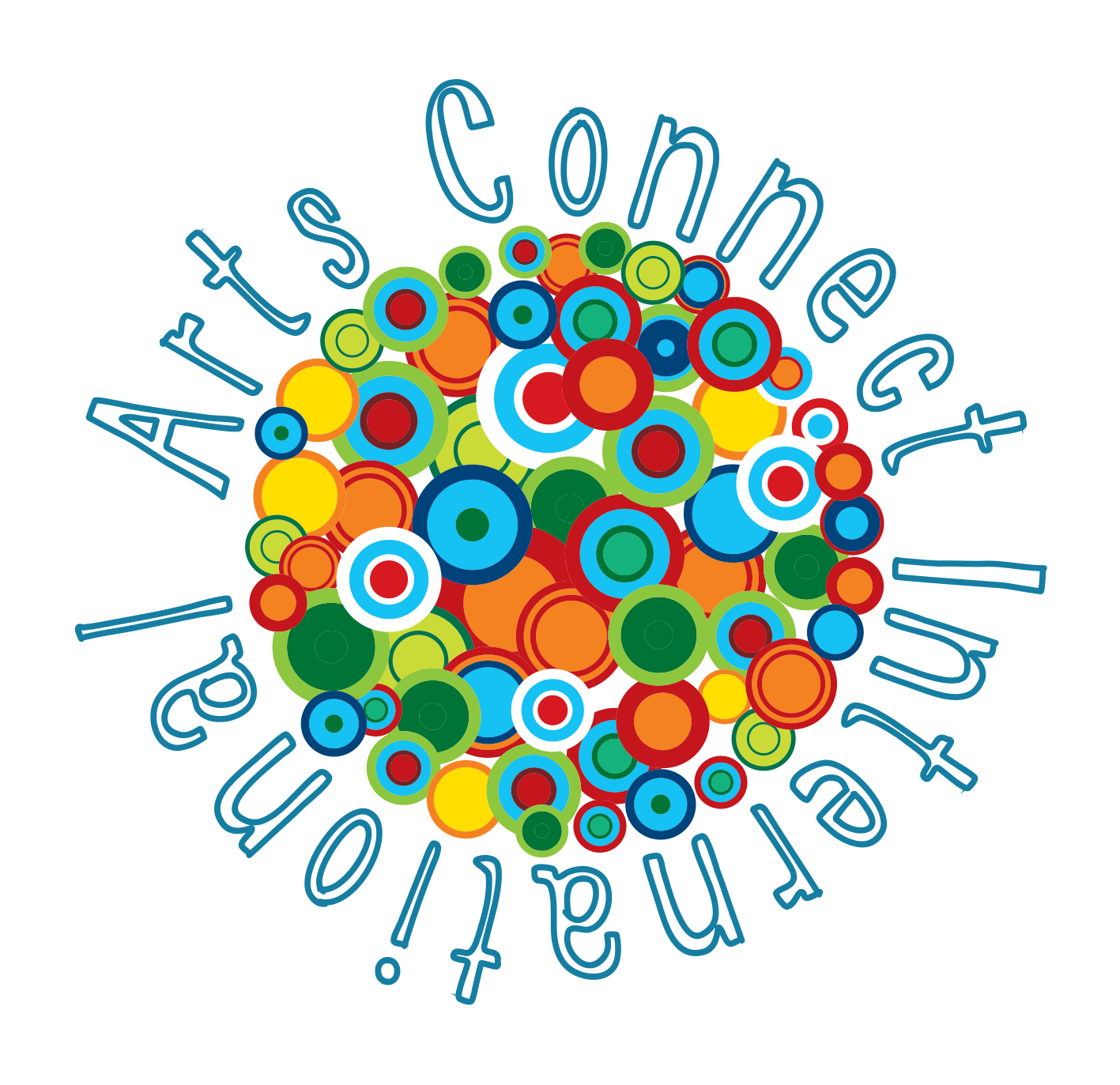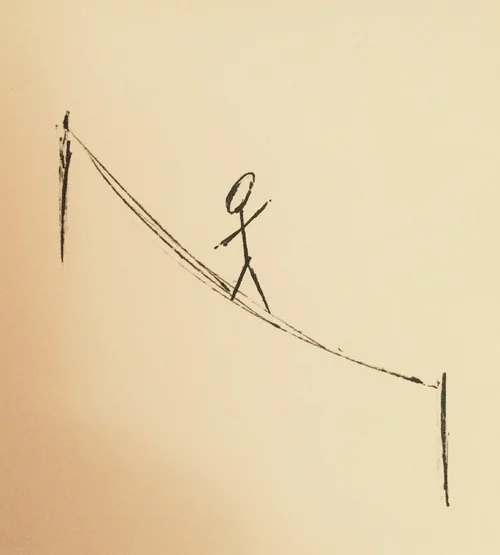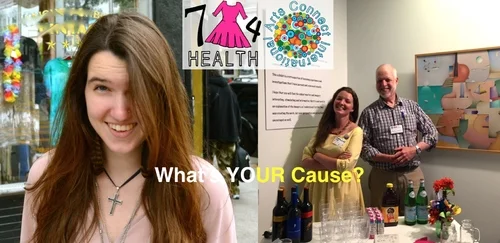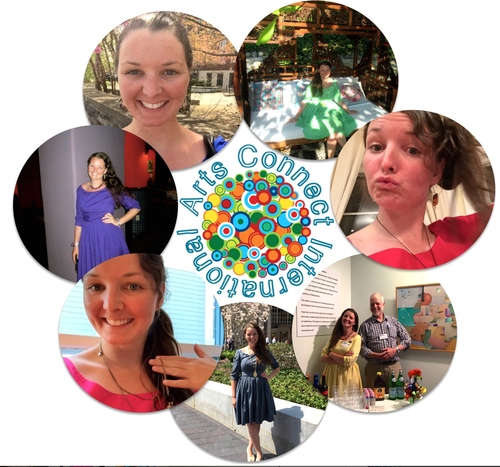Guest Blogger Bio: Devon is a musician / Wharton student who strives to combine her passions for music and business to create an innovative way of promoting empowering art. She recently spoke at the University of Pennsylvania about the intersection of art and mental health.
Hello! My name is Devon, and I’m a musician, a Penn student, a Wharton sophomore, a loud laugher, a daughter and a sister, a friend, and a enthusiast. But most importantly, I am very illogical. For some reason, I decided that it would be a good idea to pursue music as a career, and then instead of dedicating all of my time to that passion, I decided to enroll in Wharton and spend 70% of every day studying management and marketing.
But this post is not about my life choices; it’s about one of my favorite songs, “Round Here” by Counting Crows. If songwriting is to expression what mental health is to consciousness, then few artists capture of the essence of creativity on a level with Adam Duritz, and few songs can take on such interpretive meaning as Adam’s composition and performance of “Round Here.” Adam originally wrote the song while he was fronting The Himalayans. The song was a rock song with electric guitar and expressive bass, but the Counting Crows version that has received all the attention is slow, building to be a rock ballad at times, with its focus on the lyrics. And rightfully so- because the lyrics, and Adam’s delivery of the lyrics, are why I can still listen to that song on repeat during my morning commutes.
The song itself is about suicide. It’s about a girl named Maria, who says she’s dying; “she says she’s sick and tired of life; she must be tired of something.” The song looks at Maria through Adam’s eyes and shows the fragile life of a woman whose walls are crumbling. But what makes the song so amazing is that everyone can relate to it. People feel connected not only to Maria, but to Adam, the friend who is completely lost, watching Maria spin out of control and feeling just as lonely as she does at her darkest moments.
Whenever I hear the song, I always think of one of my best friends. She went through a time in high school that she didn’t think was worth surviving, and she attempted suicide. Thank goodness she didn’t go through with it; she threw up the pills and got herself help, but ever since that night, I’ve heard “Round Here” a little differently because I’ve realized that I’m Adam and she is my Maria.
The song starts out with Maria crying in her room, Adam wandering outside, feeling helpless about the situation. The second verse takes us through moments with Maria, like when “she walks along the edge of where the ocean meets the land, just like she’s walking on a wire in the circus.” Everything Maria does is deliberate, living as if any sudden change would send her tumbling. The choruses grow more and more powerful with each repetition, and by the time the song culminates in the third verse with the lines “she looks up at the building and says she’s thinking of jumping; she says she’s tired of life; she must be tired of something,” by then Adam is screaming the words with the band in full swing behind him.
The lyrics of “Round Here” beautifully articulate the internal struggle of Maria as she grapples with her desire to live, and the effect of that struggle on her friends, who are fighting that battle right along side her in their own minds. In the third verse, Adam sings about how “she says it’s only in my head; she says shh I know, it’s only in my head.” But the emotion in Adam’s voice as he sings the rest of the verse makes it clear that it’s not only in her head; it’s in his as well. The song, to me, shows how no one is ever really going through something alone. Everyone is affected.
After I listened through the most commonly played version of “Round Here” a few times, the version that is featured on the Counting Crows album August and Everything After, I decided to look into live versions. And let me say, the live versions are incredible. Every time Adam performs the song, it is totally different. I have four versions on my phone just because they’re all so unique. Adam adds verses and changes lyrics, and the passion he puts into each performance brings a whole new emotional vibrancy to the track. My favorite version of the song is the full band one on the Across A Wire: Live In New York City album.
In that performance of “Round Here,” Adam extends the third verse to last over three minutes, adding in a piano breakdown with a whole new set of lyrics. The original lyrics are “the girl on the car in the parking lot says ‘man, you should try to take a shot; can’t you see my walls are crumbling?’” Adam takes pieces of the original verse and expands on them, putting more feeling into the song than could ever fit on the album. The focus of the verse, however, becomes the line “can’t ya see me?” The line is said from Maria’s perspective over and over again, adding a desperate feel to the verse.
In general, all performances of “Round Here” are similar in that they keep the same structure, instrumentation, and base of lyrics. Two lines, however, are consistently different from the record. The second verse ends with the line “she has trouble acting normal when she’s nervous.” When Adam performs the song live, however, he often changes it to “she has trouble acting normal, well I have trouble acting normal.” Similarly, the third verse ends with the climactic line “she says she’s tired of life, she must be tired of something,” but live, Adam consistently changes the line to “she says she’s tired of life, well everybody’s tired of something.” Both of these lyrical adjustments switch the tone of the song, revealing Adam’s internal struggle that parallels Maria’s.
At the end of the song, Adam repeats a phrase from the Counting Crows song “Have You Seen Me Lately.” He says, “I was out on the radio just starting to change, somewhere out in America it’s starting to rain, could you tell me one thing you’ll remember about me?” This line resembles Maria’s “can’t you see me” anthem during the bridge, also from “Have You Seen Me Lately,” yearning for someone to help Adam complete his own picture of himself, further showing Adam’s desperate feelings towards life that are similar to Maria’s. The live performances of “Round Here” take that notion of “no one is going through something alone,” and completely blow it up, transforming it into the message that we all feel these emotions, and even though some people may show signs of instability more visibly like the girl on the car in the parking lot, we all have that desperate desire to know that we matter, that life is worth living.
Well, at least that’s what I say the song is about! On VH1 Storytellers, Adam Duritz explained that the song is actually about a man who is realizing that as he leaves people behind, he is leaving more and more of himself behind as well. The song starts off with him leaving this woman Maria, and each chorus is him shouting these lessons that a mom might say to a child, such as “round here we always stand up straight.” His point is that the things that mattered to us as children aren’t important anymore, like at the end of the song when he screams “round here we’re never sent to bed early, no nobody makes us wait; round here we stay up very, very, very, very late.” All of those things that were supposed to mean something to us as kids don’t seem to mean that much anymore, not when we’re alone.
That’s the amazing thing about songs; they can be interpreted in multiple ways and connected to various situations. At times I feel that I relate more to Maria; at times I connect more with Adam. Sometimes I’m in a good place with my emotions, and I feel like the clean electric guitar that carries the song, effortlessly supporting the story of this man and woman with no connection to the lyrics at all.
The meaning of the lyrics is beautiful in a strange way, but it’s almost irrelevant to why I keep listening to the song. Yes, I feel that the words capture the emotional distress that was plaguing my friend in high school, and my paralleled internal struggle, but the reason that I keep listening to “Round Here” is that it displays the raw emotions of Adam Duritz.
Songwriting, and art in general, is a way for artists to share their view of the world and express their inner beliefs. “Round Here” is an amazing expression of the mental calamity that was occurring in Adam’s mind while he was writing, and it is an authentic portrayal of his take on the desperation that is associated with life. That’s why I love songwriting so much, and that’s why I love Adam Duritz’s songs. Music has the ability to articulate the emotions that people simply can’t, and Adam does an incredible of job of conveying these feelings through his songs, especially in “Round Here.” He does an even better job of conveying his passion through his live performances.
People often say that artists are “crazy,” and that’s why art has the ability to take us on such emotional journeys. Music has the power to disrupt our normal thoughts and take them to places they’ve never gone before. But that’s just the thing: we have all been there before. Music simply voices what we ourselves can’t find the words to express. So maybe I’m illogical, but so is Adam Duritz, and so is everyone else. We are all Maria, and we are all Adam, and we all simply want to know that these ideals that we’ve been striving for since childhood have added up to a life that’s worth living. Art is how we express our emotions and thoughts, and it is how we experience consciousness in a more tangible way. So maybe we’re all out of our minds, but I prefer to think that it’s just that we’re all artists, round here.
Call to action: Do you have important information around one of our seven causes: HIV/AIDS, Mental Health, Nutrition, Heart Disease, Maternal Child Health, Cancer, Disability, that you want to share with a wider audience? Do you or a loved one currently live and/or struggle with one of these causes? Do you work in research, advocacy, prevention, treatment or care? We want to hear from YOU! Write to us today: 7dresses@artsconnectinternational.org to become a featured blog writer. Another way to get involved is to wear the color of the day in solidarity. Take a picture of yourself in the color of the day and Tweet it @ArtsConnectInt, tag us on Instagram @ArtsConnectInt, or send it to us on Facebook.
About 7 Dresses 4 Health (7D4H): 7D4H is a year-long arts and health education campaign lead by visual artist, Marian Brown, in conjunction with Arts Connect International. The objective of the campaign is to promote inclusive community practices through adDRESSing health artistically and collaboratively. To learn more about the genesis of the project, read Marian’s New Year Blog.
About this week's look & location: All of the dresses for 7 Dresses 4 Health were designed and sewn by Kim's Fashion Design. Love the look? Visit Kim at 100 Huntington Ave, Boston MA 02116, call her at (617) 267-9299 or email her: info@kimsfashion.com. Mention 7 Dresses 4 Health for a special discount!
Campaign Update (2017): All 7 Dresses 4 Health blogs were migrated from a former site, so the sharing analytics are inconsistent from when they were first published. We apologize to our guest bloggers, and readers, for this inconvenience. That said, the campaign garnered an average of 5K hits per blog, over 500,000 readers throughout 2015! Additionally, the average number of shares per guest blog was over 150x on social media (through Facebook and Twitter). Thank you for making this incredible campaign possible - and for all that it was for so many. With gratitude, Marian & the ACI Team



